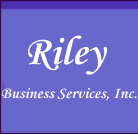     |
||||||||||
| ACTORS, DIRECTORS, & PERFORMERS
Download our expense checklist for actors PDF Version Click here for Actor's Sample Tax Return from THE NEW TAX GUIDE FOR WRITERS, ARTISTS, PERFORMERS & OTHER CREATIVE PEOPLE
PLEASE NOTE: the 2017 TCJA tax bill now disallows all employee business expenses on Form 2106 except for the rare performers that qualify under the QPA (Qualified Performing Artist). Starting in 2018 performers that receive most of their income via W2 (such as member of Actors Equity) will want to consider setting up a "loan out" corporation as a means of retaining their tax deductions. What is a Deductible Expense? The goal is first and foremost to lower your taxes! The musician/performer has a number of tax deductions that are unique. In the balance of this article we will try to break them down to their component parts to make the issues understandable. For the IRS, all deductible business expenses are those that are:
The performer has a bag of basic expenses that easily fit the above criteria: travel (hotel, meals, etc.), vehicle and transportation, equipment, supplies, wardrobe, home office expenses, legal and professional fees, video costs, agent fees, promotional expenses, etc (see our list). Let’s review some of the more complex and contentious deduction areas, but first let’s discuss income. Income for the Performer Income for the performer is: all payments for performances, guest appearances, crowdfunding, income from teaching, voice over work, film and video work, directing, choreography, etc. regardless of whether you receive a 1099 or W-2 at year-end. It is a common misconception that if you do not get tax forms at year-end then it is not reportable income. This is untrue. If you have income in any form (including barters and free products from endorsements), it is required to be reported on your 1040. The form 1099-MISC tax form is supposed to be filed on any payments made to an individual for services amounting to more than $600 in any calendar year. When you are paid as an employee on a W-2, the employer withholds federal, state and local (if applicable) income tax as well as the FICA taxes, Social Security and Medicare. Travel & Meals The performer is allowed to deduct all expenses associated with overnight travel. These include meals (which are only 50% deductible), hotel & lodging, reasonable tips, dry-cleaning, phone calls home, etc. Overnight travel is roughly defined by the IRS as travel that is far enough away from home so as to make it inconvenient to return home at night. Travel could include expenses related to performances, guest appearances, recording sessions, auditions, etc. and will include many of the expenditures made on such trips. The other question often asked is whether or not the travel deduction applies for mixed vacation/business travel. If the trip is primarily business, then deductibility will be maintained. For example: a trip to NYC for acting work in an independent film that includes a two-day stopover in Philadelphia on the way home to visit a friend. In this case the entire NYC trip would be deductible but the expenses related to the Philadelphia stopover would not be. Since maintaining receipts on the road is difficult, consider using the Internal Revenue Service per diem "meal allowance" for deducting meals when traveling. This "meal allowance" (adjusted annually by the IRS) ranges from $68 to $92 per day depending on the location (see www.gsa.gov for current rates). In practice this means that receipts for meals are not required as long as the travel itself can be substantiated. This "allowance" includes all three meals and incidental expenses for the day. Travel expenses for spouses or dependents are not allowed unless they are employees or part of the performer's business. Meals are 50% deductible as part of the overnight travel. They are also allowed as a separate (non-travel) deduction when they meet the criteria of "ordinary, necessary and business related." This means that the meal must include direct business discussions. This can mean lunch or dinner meetings with agents, fellow actors or performers, directors, film & video producers, record producers, etc. If a direct business purpose were documented, then the deduction would be allowed. These meals could include discussions on schedules, music arrangements, possible future acting or directing work, recording dates, meetings with lawyers, accountants, production or film companies. The best place to keep records of these expenses is in your calendar. Log into your records who was present, and briefly the nature and substance of the discussion. I often suggest that you keep a copy of the person's business card or other digital messaging as further substantiation. Remember as our lives continually become more virtual you MUST be able to access old calendar information (for up to 3 years) AND be able to print it in the case of an Internal Revenue Service audit. As of this writing (2022) the Internal Revenue Service is now able to use digital files and data of some type. A question often asked is whether the artist has any tax deductions if the employer covers or reimburses the artist for all expenses. The answer to this question centers on what type of expense plan the employer operates. There are two basic plans the IRS allows:
Automobile & Vehicle Expenses The use of your automobile is probably one of the most common and largest deductions for performers. The automobile use expense can be taken in either of two ways. The first method is by using the IRS "standard mileage allowance." In 2025 this annually defined allowance was 70 cents and moves to 72.5 cents in 2026. To take this deduction you do not need receipts, only records that show the distances driven and the business purpose of the trips. These would include travel to performances, trips to the store picking up equipment and supplies, rehearsals, acting jobs, directing jobs, performances (both as player and observer), etc. The best tool for tracking and calculating this expense is your appointment book or calendar. If your calendar has a record of rehearsals and performances, it can be used as a tool to estimate your mileage deduction (odometer readings are appreciated by IRS but NOT required). The second method is to write off direct expenses. In this method you depreciate the cost of the vehicle (over 5 years) and then tally up gas slips, repairs, insurance, etc. and use that amount as a basis for your expense. This method requires more work and organization. If you were writing off a heavy SUV (over 6000 LBS) or other larger vehicle, the second method would be preferred. In my practice I often find the mileage allowance method generally yields the highest deduction for straight automobile use. In any case the IRS allows the taxpayer to calculate the best method year by year and take the one that yields the highest deduction (within limits). Equipment Equipment purchased is generally "depreciated" and written off over 5 or 7 years on Form 4562. Depreciation is a technique for expensing or writing off purchases that have a useful life of greater than one year. In other words, a notebook computer is intrinsically different in nature than office supplies. Expenses such as dues, promotional photos, scripts, music books, streaming music and video services, etc. will be written off (or deducted) in the year of purchase. Most equipment is written off in five to seven years. These "depreciable lives" are defined in the IRS code. The 2017 TCJA tax bill really changed the deprecation deduction. The "section 179 election" that allows for the immediate expensing of most assets. In this case the performer can write-off his or her $1,600 MacBook® computer, audio equipment or iPad Pro in one year rather than wait five years to do it. Remember, this "section 179 expensing election" only accelerates the deduction into one year; in either method the artist can write-off (depreciate) the full cost of the purchase. The Home Office or Studio If you use a room (or rooms) in your home exclusively for your business, you will probably qualify for the home office. The use of the room can be as a rehearsal space, storage area for equipment, teaching space, storage of scripts and library material, home recording and/or video studio, record keeping for the business, marketing, etc. The home office is a straightforward deduction to calculate on form 8829. It simply utilizes a formula based on the square footage of the business portion (the home office) of your home vs. the total square footage of the house or apartment and applies that percentage to all associated costs. The costs could include apartment rent, mortgage interest, real estate taxes, condo fees, utilities, insurance, repairs, etc. Other rules that come into play here include the "exclusive use" requirement. This rule states that the home office must be used only for the business no "mixed use" allowed. In other words, the home office cannot be part of a larger room such as the living room unless the business part is partitioned off in some way. The home office can be a powerful write-off as it allows the musician to deduct a part of what were non-deductible personal expenses. Look into the alternative "Simplified Method" it is easier but generally offers a much smaller tax deduction. Other Unique Deductions Performers and actors have other unique deductions that are considered personal for most other taxpayers. These include concert, theatre and movie tickets, CDs, streaming services for music or movies, stage makeup and wardrobe, lessons & classes, DVDs, etc. Remember not to get greedy on items like concert tickets, shows and streaming services. The IRS loves to attack deductions such as these. But they are allowed since performers must keep up with trends in their profession. Most tax preparers call it "research," but be prepared to justify it. In any case, do not deduct EVERY concert or show you attend in the year; they can't all be "research," some must be for personal enjoyment. This also holds true for videos and music; some purchases must be for personal pleasure alone. Finally… Remember that this outline is not intended to be the whole story. For more information please purchase our newly updated 5th Edition book "The New Tax Guide for Writers, Artists, Performers, & Other Creative People" which contains more information as well as dozens of real-life tax situations for the performer. The Federal Tax Code is very complicated, and your specific applications should be reviewed with a tax professional before filing your taxes. The actor and performer are unique in the world of taxes. When you are shopping for a tax preparer please make sure they have some experience in taxation for performers. Also, organize your numbers using our attached worksheets (and bring along this article), it will make the process easier and cheaper and will help you maximize your deductions. Ask your preparer about other tax saving strategies for self-employed individuals such as retirement plans, health insurance and deduction timing. For more information please purchase our book "The New Tax Guide for Artists of Every Persuasion" which contains more information as well as dozens of real-life tax situations for the performer. © Peter Jason Riley, CPA © Copyright 2001-2026 Riley Business Services 978.270.9260 All Rights Reserved |